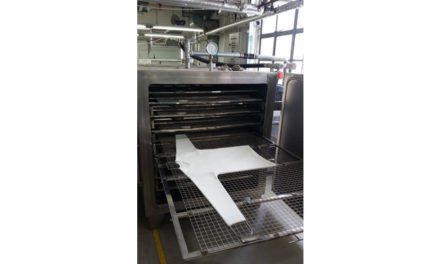 June data indicated that output growth across the UK private sector was unchanged from the 15-month low seen in May, according to S&P Global. Resilient business activity trends were seen across the service economy as a whole, but manufacturing production growth eased further to its lowest since February 2021. Demand conditions remained subdued in June, with new order growth slowing for the fourth month running and to a greater extent than seen during May.
June data indicated that output growth across the UK private sector was unchanged from the 15-month low seen in May, according to S&P Global. Resilient business activity trends were seen across the service economy as a whole, but manufacturing production growth eased further to its lowest since February 2021. Demand conditions remained subdued in June, with new order growth slowing for the fourth month running and to a greater extent than seen during May.
About The Author
Related Posts

Cover Story
Archives
- December 2025 (10)
- November 2025 (69)
- October 2025 (89)
- September 2025 (83)
- August 2025 (84)
- July 2025 (80)
- June 2025 (80)
- May 2025 (67)
- April 2025 (97)
- March 2025 (70)
- February 2025 (64)
- January 2025 (71)
- December 2024 (81)
- November 2024 (81)
- October 2024 (70)
- September 2024 (92)
- August 2024 (79)
- July 2024 (89)
- June 2024 (78)
- May 2024 (79)
- April 2024 (85)
- March 2024 (98)
- February 2024 (82)
- January 2024 (93)
- December 2023 (97)
- November 2023 (99)
- October 2023 (96)
- September 2023 (82)
- August 2023 (78)
- July 2023 (77)
- June 2023 (99)
- May 2023 (108)
- April 2023 (83)
- March 2023 (84)
- February 2023 (80)
- January 2023 (67)
- December 2022 (107)
- November 2022 (76)
- October 2022 (74)
- September 2022 (98)
- August 2022 (87)
- July 2022 (67)
- June 2022 (108)
- May 2022 (96)
- April 2022 (88)
- March 2022 (89)
- February 2022 (92)
- January 2022 (76)
- December 2021 (78)
- November 2021 (11)
- October 2021 (17)
- September 2021 (32)
- August 2021 (22)
- July 2021 (28)
- April 2021 (46)
- March 2021 (107)
- February 2021 (113)
- January 2021 (76)
- November 2020 (13)
- October 2020 (55)
- September 2020 (51)
- August 2020 (27)
- July 2020 (3)
- March 2020 (69)
- February 2020 (107)
- January 2020 (100)
- December 2019 (118)
- November 2019 (132)
- October 2019 (117)
- September 2019 (165)
- August 2019 (152)
- July 2019 (157)
- June 2019 (122)
- May 2019 (97)
- April 2019 (88)
- March 2019 (76)
- February 2019 (88)
- January 2019 (41)
- December 2018 (86)
- November 2018 (40)
- October 2018 (87)
- September 2018 (59)
- August 2018 (51)
- July 2018 (152)
- June 2018 (15)
- May 2018 (12)
- April 2018 (64)
- March 2018 (10)
- February 2018 (72)
- January 2018 (3)
- December 2017 (68)
- November 2017 (20)
- October 2017 (66)
- September 2017 (9)
- August 2017 (59)
- July 2017 (59)
- April 2017 (62)
- February 2017 (6)




















